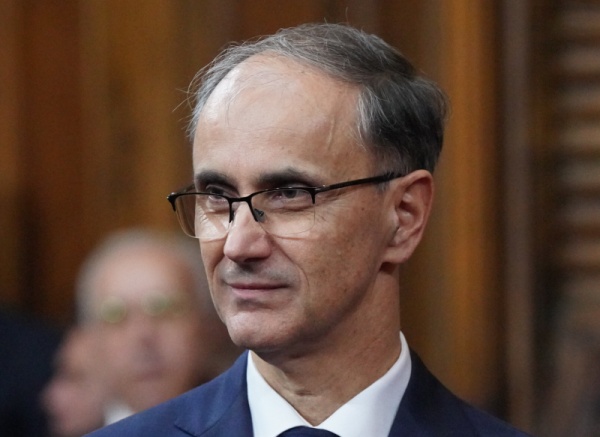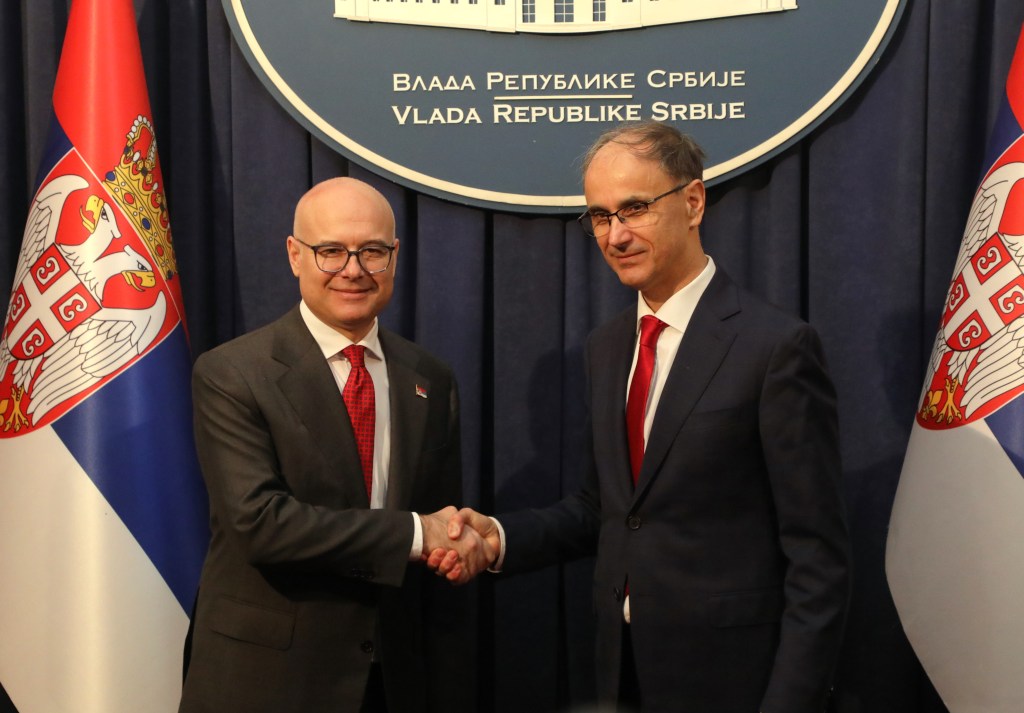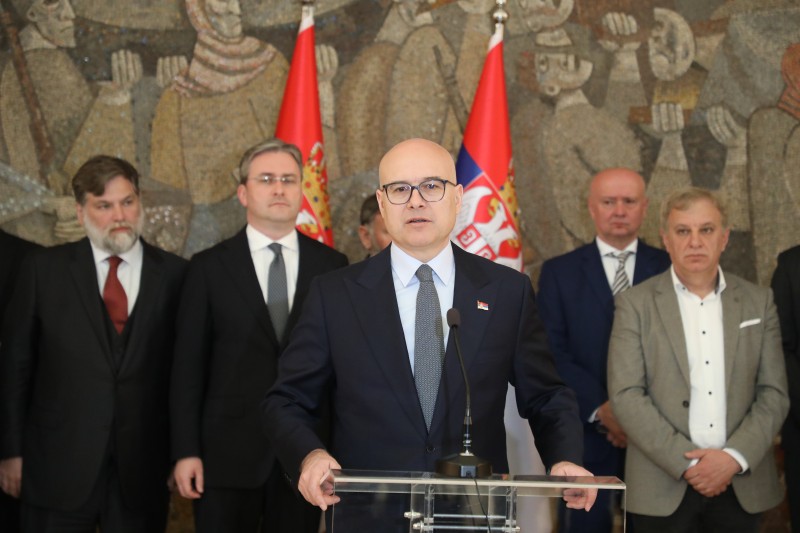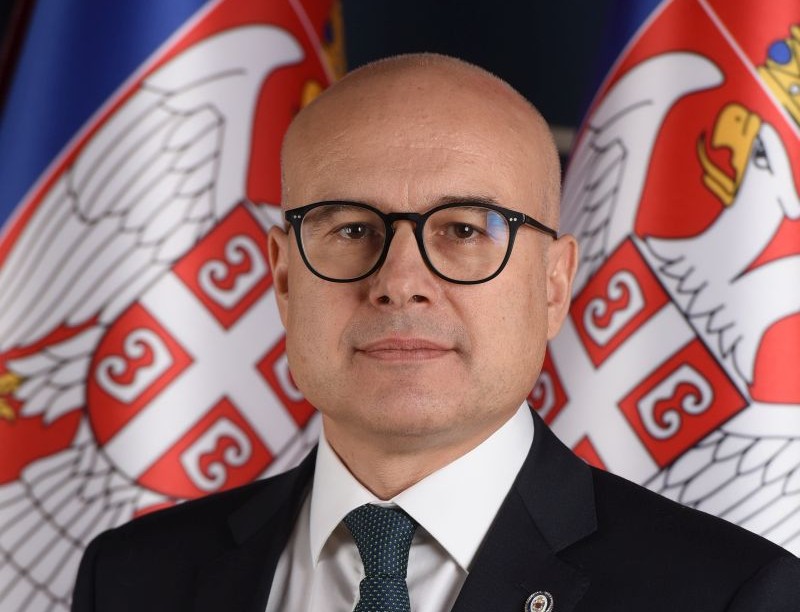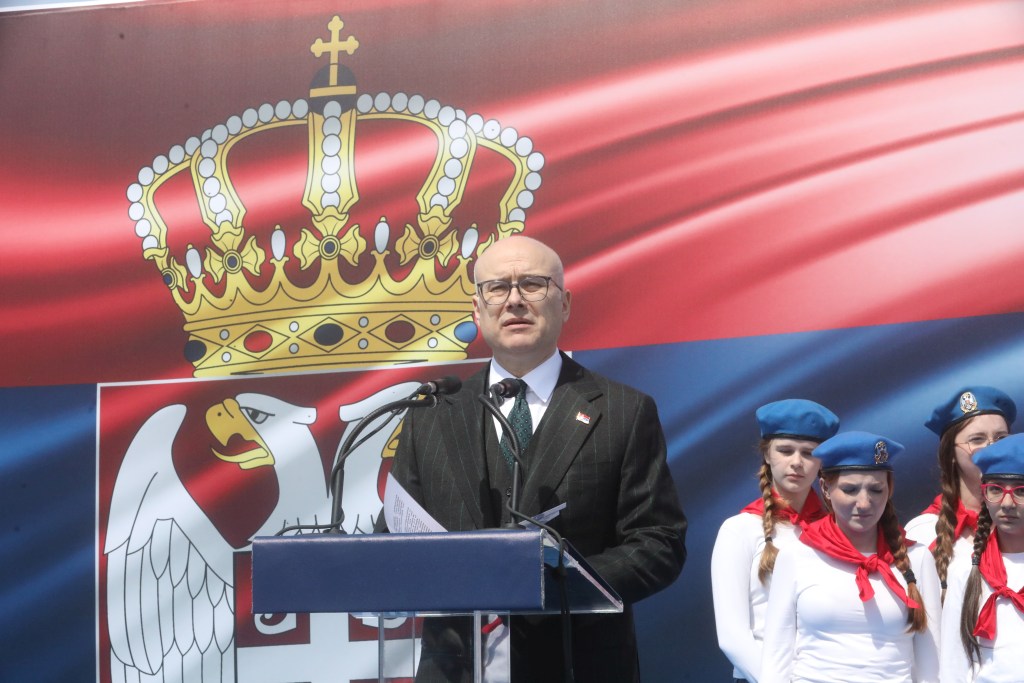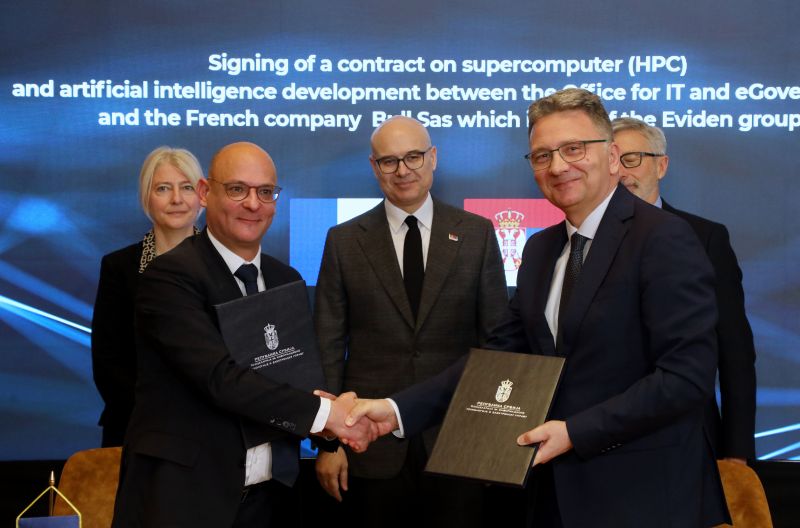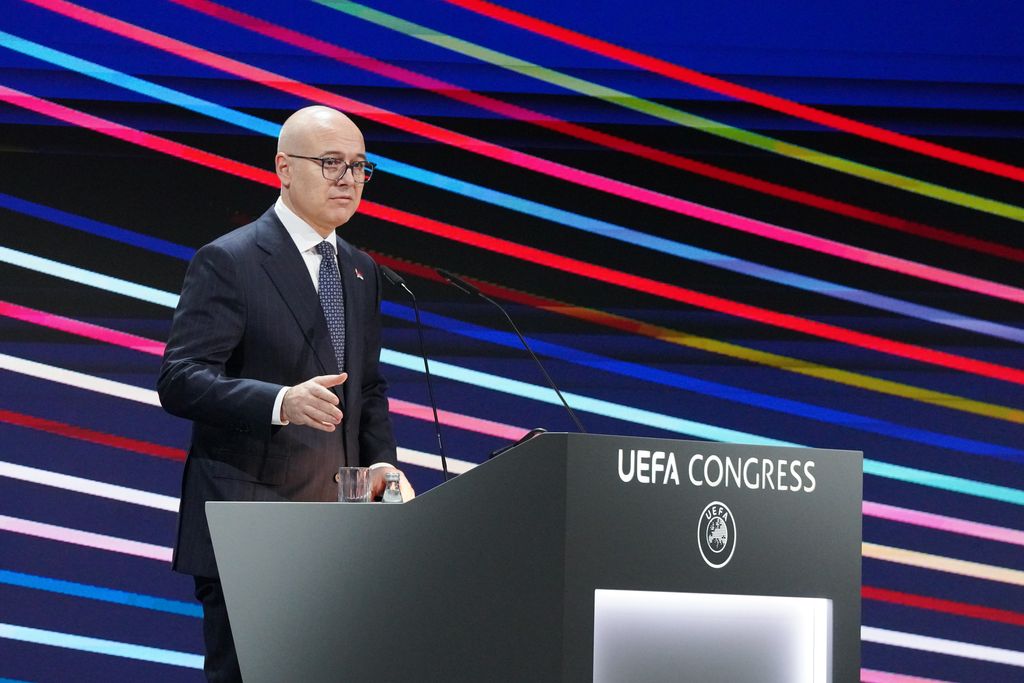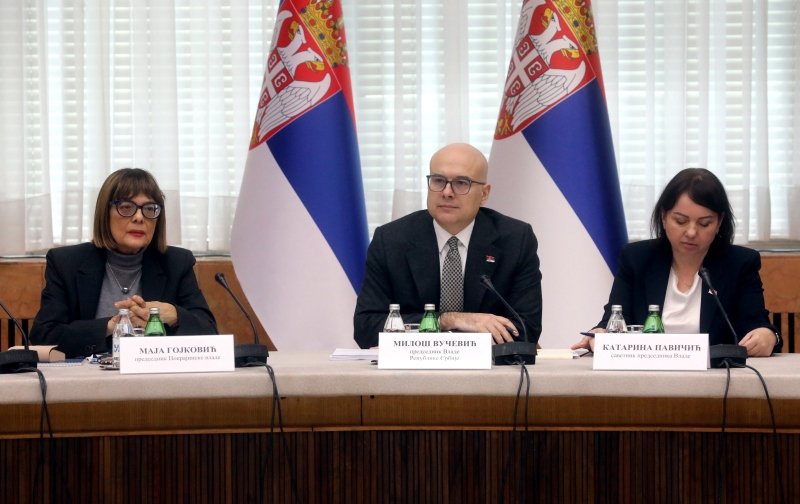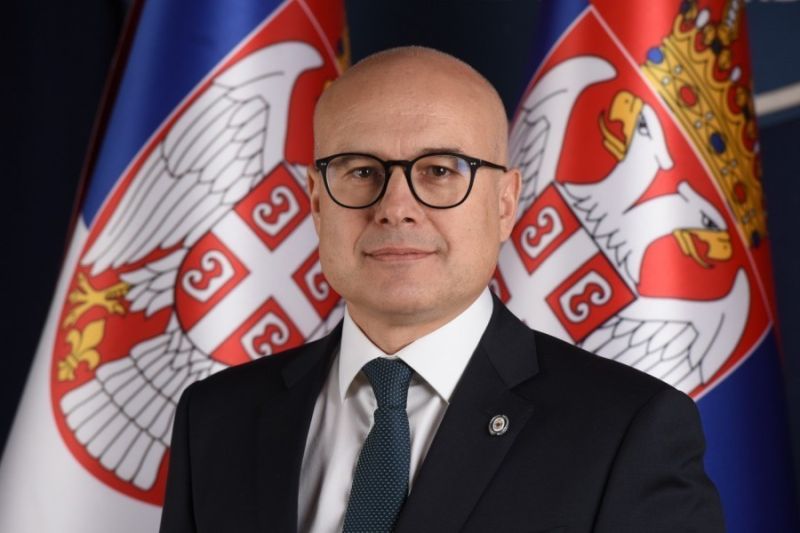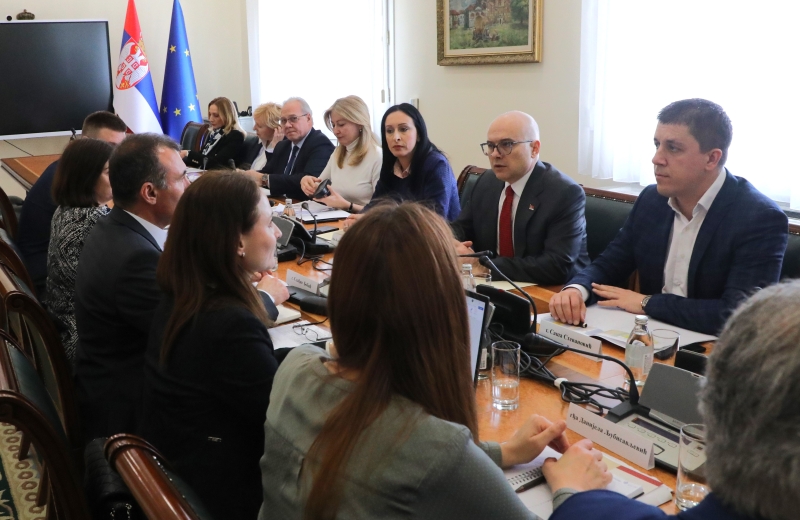Prime Minister Ana Brnabic stated in New York late today that in Kosovo and Metohija there is all-encompassing political, legal, institutional and physical violence against Serbs.
Political, legal, institutional and physical violence against Serbs in Kosovo and Metohija
The website of the Government of the Republic of Serbia brings the full speech of Prime Minister Brnabic at a session of the United Nations Security Council (UNSC), where the Report on the work of the UNMIK in Kosovo and Metohija was presented:
“Dear President of the Security Council,
Respected Members of the Security Council,
Esteemed Special Representative,
I would like to start by expressing my gratitude to the Secretary-General of the UN, Mr. António Guterres, and Special Representative of the Secretary-General and Head of UNMIK, Ms. Caroline Ziadeh, for the attention they dedicate to Kosovo and Metohija.
As always, I would like to emphasize the importance of regular and objective reporting on the situation in Kosovo and Metohija, Autonomous Province of the Republic of Serbia, in line with the Constitution of the Republic of Serbia, UN Charter, UN Security Council Resolution 1244, and basic principles of international law.
I am thankful for the opportunity to share the views with those present, and with international public, regarding the latest UNMIK report.
I will try to abstain from overly bureaucratic language and present the views – in a clear and straightforward manner – simply because the situation in the past two years, and especially in the past 12 months, became so grave that we all need to try and understand, not as politicians, but first and foremost as human beings, what is happening and where to go from here, in order to provide at least a glimpse of hope to those in Kosovo and Metohija who suffer every day, at least a glimpse of hope that stability and long term peace is possible.
Mr. President,
From what we can all seen on the ground, based on numerous examples in the past 12-18 months, the officials in Priština, the administration in Priština, regrettably, to put it in the simplest form, have 3 key messages for Serbs, other non-Albanians in Kosovo and Metohija – and for international community.
And all that we are seeing in these reports, and all that is happening every day on the ground, can be summed up in these 3 messages.
The first message is: Those Serbs who left – after 1999, or during the ethnic cleansing, pogrom of 2004, should not come back. They are not welcome.
It is deeply disturbing, unfortunate, and also embarrassing, that Kosovo and Metohija remains, according to relevant UN reports, a territory which, compared to all post-conflict territories in this whole crazy world of ours, has the least number of returnees. Less than 2% of displaced people returned to Kosovo and Metohija!
This is not by accident.
When they go back, if they try to go back, they usually see that their private property was illegally seized by someone. They, then, go to authorities to report usurpation and to ask for assistance, hoping for justice and fairness. On most occasions, instead of getting assistance, they find themselves arrested, and end up in prison.
Just in the past few months, individuals such as Dušan Arsić from Matica near Priština, Časlav Jolić and Gavrilo Milosavljević from Istok, and Milorad Đoković from Vitomirica, were all arrested, on the charges for war crimes, although they entered Kosovo and Metohija multiple times in the past and were never arrested or charged with anything, until such time when they asked for their private property, their land, their homes, to be returned to them. At that point in time, the charges suddenly emerged, only after legal processes of reclaiming usurped property had begun!
This is a clear message to displaced Serbs from the official Priština: do not return, you are not welcome!
Hence the humiliating fact: Kosovo and Metohija remains the world champion in the least number of returnees of all of the post-conflict territories worldwide.
The second message that is being sent to Serbs, in the most brutal ways, is: those who stayed, who still live on the territory of Kosovo and Metohija, and who want to stay – should leave.
Through months and years of systematic, outright annulment of even the most basic human rights of Serbs and other non-Albanians, turning their lives into a constant nightmare of insecurity caused by total and utter absence of the rule of law, and marked by arbitrary decision-making on who, and when, will be arrested, taken into custody, beaten up, tortured, humiliated and kept in prison for unknown periods of time, wondering if your children, brothers, fathers and husbands will be shot at freely, simply because they are Serbs, if your priests will be deported, and your property confiscated, if those who shoot at you and those who beat you up will always, as a rule, be let to walk free – as is happening every day in today’s Kosovo and Metohija – by doing that every day, of every week, of every month, of every year, for the past few years, Priština has managed to generate a dangerous security crisis.
What we see in Kosovo and Metohija today, and the report of the UN Secretary General clearly shows some of these things, is comprehensive political, legal, institutional, and physical violence against Serbs.
From a human standpoint, the absolute turning point when everyone understood that what Priština wants is for Serbs to leave, wasn’t the attempted murder of the 11-year-old child Stefan Stojanović, and his 21-year-old cousin Miloš, while participating in Christmas procession in Gotovuša, near Štrpce. No. It was, in fact, the day when Azem Kurtaj, who committed this hideous crime, shooting at children on Christmas, a member of the so-called Kosovo Security Forces (which is, by the way, illegal formation according to Article 15 of UN SC Resolution 1244), was let go as a free man.
Azem Kurtaj, who shot and wounded 11-year-old boy on Christmas, is today a free man, granted a complete amnesty by Priština judiciary. That is perhaps all anyone needs to know about the rule of law in Kosovo and Metohija, and all anyone needs to know about conditions in which Serbs and other non-Albanians live in Kosovo and Metohija today.
So, let me pose this question to all of us – when an Albanian, a member of the so-called Kosovo Security Forces, shoots and severely wounds a child, and is then proclaimed a free man – is this not a call by official Priština for anyone else to shoot at Serbs, terrorize them, wound or kill them? Why wouldn’t they – there is no consequence of such acts. The amnesty for Kurtaj is basically an open invitation for others to repeat such kind of acts.
On the other hand, interestingly, in that same legal system which freed a criminal who shot at children, if you are a Serb, like brothers Andrija and Mihajlo Micić, from Gračanica, you get arrested and detained, for a month, for not wearing a seat belt!
Unbelievable, isn’t it?
But, the sad truth is: this is what the everyday life of Serbs in Kosovo and Metohija looks like today.
Unfortunately, we have even more paradox examples.
Slađan Trajković and Zlatko Arsić were both accused and arrested for alleged war crimes. Surprisingly, they both used to be members of the so-called Kosovo police, where, in order to get employed, they had to obtain security clearances from Priština!
So, they passed security checks by Priština, were accepted into the Kosovo Police, served for years as part of multiethnic policing (based on the Brussels Agreement), and once they left the police, they were arrested and charged with being war criminals?!?
Slađan Trajković, who was part of the Kosovo Police since 2013, and passed all security clearances, was arrested on 15th December and is still in custody (more than 10 months)!
Zlatko Arsić was within Kosovo Police even longer, but was arrested on 7th March and, of course, he is still in custody.
Let me repeat that: these people passed all the security checks when they needed to be in the multiethnic police, but they suddenly were accused of being war criminals once they left the police!
So, in very simple terms: in today’s Kosovo*, if you are a Serb, you can be arbitrarily arrested, charged, and kept in custody for as long as their politicians wish – and that is happening in the presence of KFOR, EULEX and UNMIK.
Can you imagine what would the life in Kosovo and Metohija look like, if governed by Priština, without KFOR, EULEX and UNMIK present?
Just from the beginning of this year, 6 Serbs were shot at, and no one was found criminally responsible. In the past two and a half years, there were 434 ethnically motivated attacks on Serbs and their property, unbelievable 50% increase compared to the period before Kurti’s administration – and we still don’t know if anybody was held accountable, or if any charges were pressed against any of the perpetrators.
As a direct result of this terror, 11% of Serbs have left northern Kosovo and Metohija since Albin Kurti came to power. I will repeat, 11% of Serbs have left Kosovo and Metohija in the past two years due to that campaign of systematic and widespread violence against Serbs and the deliberate creation of unbearable living conditions for them.
In this regard, the question posed before this body is whether this serves as a reason for action, or merely a cause for statements.
Now, the third clear message from the official Priština to Serbs, but also to international community, is this: the agreements reached shall not be implemented, and those agreements, or part of the agreements that were implemented, will be annulled, dismantled or blocked.
As this Report clearly states, as did all others from the past 10+ years, not a word of the Brussels Agreement, as the 1st Agreement on Normalization, was implemented by Priština.
We need this to change.
High time for establishment of the Community of Serb Municipalities passed 5 or 6 years ago, but still – this is something that needs to be done.
The Community of Serb Municipalities is unavoidable element on which the implementation of any further agreements rests upon.
However, let me state clearly, it needs to be the Community of Serb Municipalities in accordance with the signed Agreements from 2013 and 2015, not just any organization bearing that name.
The method of forming and adopting the Statute of the Community of Serb Municipalities, as well as its powers, have been clearly defined and cannot be subject to interpretation. The general principles for establishing the Community of Serb Municipalities, its legal framework, and a detailed list of its competencies are clearly stated in the 2015 Agreement, which was signed by Isa Mustafa, as the official representative of Priština in the presence of the then EU High Representative, Federica Mogherini.
We all know that, in the past two years, Priština openly stated on several occasions that it has no interest in the Community of Serb Municipalities whatsoever.
To make things worse, in the past 12 months, Priština has actively been undermining everything that was achieved through the Brussels Agreement. On 3rd November of last year, Albin Kurti removed the commander of the Regional Police Directorate North, effectively dismantling the multiethnic police force in Kosovo and Metohija, directly contradicting Article 9 of the Brussels Agreement.
Only after this action did representatives of the Serbian people leave the institutions in Priština. This departure occurred after Kurti essentially expelled them from those institutions.
As yet another signal that they do not recognize or care for the Brussels Agreement, on 4th of August, amidst the security crisis in northern Kosovo and Metohija, Priština tried to revoke the license of telecom company MTS. This measure represents direct violation of the Brussels Agreement and the accomplishments achieved through that Agreement.
As of 14th June, Priština is also directly breeching the Central European Free Trade Agreement (CEFTA) – and not for the first time. The ban on the movement of goods of Serbian origin in Kosovo and Metohija directly violates the principle of free trade, CEFTA, and Chapter IV of the Stabilization and Association Agreement between the EU and Priština.
As a direct consequence, Serbs and other non-Albanians in Kosovo and Metohija are finding it increasingly difficult to access food and medicine. We have looming humanitarian crisis. Healthcare institutions in predominantly Serbian areas cannot procure basic medical supplies, such as oxygen. Medications that are no longer available include chemotherapy drugs, anaesthetics, antibiotics, infusion solutions, vaccines, etc. Medications for extremely urgent cases and surgeries for a maximum of two more weeks are still available. They lack even BCG vaccines for babies.
When we talk about the fact that Priština is simply ignoring international agreements – be it the Brussels Agreement, CEFTA, or SAA, let us look at how the most recent requests for de-escalation made by the international community were met by Priština.
Or firstly – how did it come to the escalation of the already terrible situation on the ground?
The key event from which everything irreversibly began to move toward comprehensive destabilization were the sham local elections held in April in 4 municipalities in northern Kosovo and Metohija.
Instead of understanding that Serbs left provisional institutions as a call for full implementation of the Brussels Agreement and salvation of the dialogue process, Priština decided to escalate further. They decided to hold local elections in which only 0.03% of Serbs, who make up more than 95% of the population in northern Kosovo and Metohija, participated. The elections were conducted in a reduced number of polling stations, voting took place in special containers guarded by fully armed militia. “Free and fair” is not the term anyone would use to describe those elections.
Following these events (because they cannot be referred to as “elections”), appointees of Priština (because they cannot be referred to as “elected mayors”) forcefully entered the municipal offices in Zvečan, Zubin Potok, and Leposavić, accompanied by special units of Kosovo Police armed with long-barrelled guns, which is yet another direct violation of the Brussels Agreement.
What happened in the following days, you all know, and we heard in the UNMIK Report – terrible escalation. Protests resulted in the injury of more than 50 unarmed Serbs. Injuries were inflicted on KFOR members, which is tragic and unacceptable. On that occasion, 3 Serbs were hospitalized due to gunshot wounds, and 4 of them were arrested. The most severe injuries were sustained by Dragiša Galjak, who was shot in the back with a burst from an automatic rifle, suffering injuries to the spine, abdomen, and hand. The member of the special unit of the Kosovo Police responsible for this crime, has not been arrested, nor even charged.
Rather than pursuing criminals who shot at the demonstrators, Priština keeps people like Dušan Obrenović in prison. Obrenović, as clearly seen in video footage, peacefully protested against violence, but this, and subsequent evidence, did not prevent his arrest, following which he was brutally mistreated and beaten up. He remains in custody to this day.
The EU then, on 3rd of June, called for de-escalation.
And since 3rd of June, when the EU demanded immediate de-escalation, Priština has taken a total of 23 escalatory steps in northern Kosovo and Metohija. 23!
Total of 24 Serbs were arrested since EU demanded immediate de-escalation. One of them, Milun Milenković Lune was brutally and inhumanely beaten during his arrest and detention, documented through medical records and reports. He is accused of participating in citizen protests in Zvečan, even though he was not even present in Zvečan on that day! He is also still detained. The UNMIK Report confirms that there is a video displaying the mistreatment and degradation of one of the arrested individuals while in police custody, which was widely circulated on social media.
The Kosovo Police intercepted two underage children, Kristijan (15) and Dara Radosavljević (17), riding quad bikes in the village of Rudine near Zvečan, and brutally beat them. The mother found her son kneeling, hands covering his head, while two heavily armed policemen stood over him.
On 23rd June, the so-called Kosovo Security Forces conducted a military march with hundreds of their members in South Mitrovica and around the outskirts of North Mitrovica. The EU High Representative, Joseph Borrell, on the occasion, stated: ”Escalation continues. Very alarmed by the situation in the north of Kosovo: extrajudicial arrests of Kosovo Serbs and Kosovo Security Forces marching in South Mitrovica.”
On 28th of June, on our most important national holiday, Vidovdan, the Kosovo Police stopped, as much as 3 times, the car in which the elder son of Serbian President Aleksandar Vučić, Danilo, was traveling – clear and brutal provocation.
On 29th of June, Priština unilaterally declared the Civil Protection a "terrorist organization" without coordination and consultation with international partners.
And so on....
Priština continued illegal expropriation of land owned by Serbs in Zubin Potok and Leposavić. They also enacted a new law on expropriation, legalizing the unlawful seizure of Serbian land. Priština persisted in establishing illegal bases in northern Kosovo and Metohija on land unlawfully taken from Serbs. The EU Delegation in Priština stated that: “The establishment of 4 Kosovo Police bases on private and socially owned land - in some cases prior to initiating expropriation procedures - raises concerns about property rights in the north of Kosovo and must be adequately addressed”.
Finally, only 2 days ago, abbot of the “Devina Voda” monastery near Zvečan, Father Fotija, was deported to North Macedonia without any clear explanation.
And in the same brief period, after the EU called for de-escalation, as much as 74 ethnically motivated attacks against Serbs occurred.
Dear members of the Security Council,
The crisis in Kosovo and Metohija, considering all the facts presented, tragically, but predictably, escalated on September 24 when an armed conflict occurred between a group of armed Serbs from Kosovo and Metohija and police and paramilitary formations from Priština in the village of Banjska and its surroundings.
Investigations are ongoing to provide all the answers and shed light on all uncertainties regarding these events, including the manner in which 2 out of 3 deceased Serbs lost their lives, which appears to have been a cold-blooded execution after they surrendered.
I want to assert responsibly that Belgrade, or Serbia's security structures, had nothing to do with this event, and we are prepared to provide all information and evidence available today to the international community to confirm this statement.
I would also like to use this opportunity to express my sincere regret for the loss of human lives, and I hope it never happens again.
The events in Banjska are, unfortunately, a logical consequence of the reign of fear and terror that Priština decided to enforce, despite clear demands for de-escalation from the international community, precisely counting on the peaceful resistance of the Serbian people in northern Kosovo and Metohija to become something more.
If this event is not a consequence of the destabilization implemented by Priština, but rather the cause, as Priština persistently attempts to portray it, I ask you, why do we still have a crisis on the ground?
Why is Priština intimidating Serbian children with armoured vehicles and long firearms in kindergartens?
Why is the terror and arbitrary arrests of Serbs intensifying?
Why are attacks against Serbs, our churches, and property, continuing, and why can't patients get their medicines?
To sum up: we have been continuously and repeatedly expressing concerns about the dangers that may arise from Priština's refusal to fulfil the obligations undertaken in the dialogue with Belgrade, facilitated by the EU.
The current situation on the ground is inevitable consequence of a series of more than a dozen unilateral actions by Priština.
Displaced Serbs cannot return to Kosovo and Metohija. When they try, men get arrested, and women, like Dragica Gašić, threatened and terrorized.
Those Serbs who stayed, live in terror and insecurity every day. Priština basically wants them out, and is demonstrating that in clear terms. 11% already left.
Make no mistake, what we are testifying is a campaign of silent ethnic cleansing.
This campaign of systematic and widespread violence against Serbs and deliberate creation of unbearable living conditions for them, consists of gradual, but permanent denial of basic rights, attacks by members of armed Priština formations, physical assaults on Serbs and their property, and false indictments.
All previous agreements from the dialogue have been brutally violated, dealing a fatal blow to the very idea of negotiations, normalization, and reconciliation.
These repressive and ethnically motivated actions were carefully calculated to provoke reactions from Serbs in northern Kosovo and Metohija, only for such responses to be later exploited to continue and intensify reprisals and terror.
And finally, let me underscore in the simplest possible terms, what the goal of the Republic of Serbia is – what we want to achieve.
One: Implementation of all past agreements – namely the Brussels Agreement and the establishment of the Community of Serb Municipalities in line with the agreement signed in 2015.
Two: Security for our people, for all the people in Kosovo and Metohija. While the dialogue continues, and we search for compromise which will ensure long term peace and stability, historic reconciliation between Serbs and Albanians, prosperity, please help the people living in Kosovo and Metohija, Serbs as well as other non-Albanians, to live in peace, enjoy basic freedoms, safety and security without constant intimidation and persecution.
Three: We stand for, and firmly believe, in the principles of international rule of law and UN Charter, and will continue calling for the full respect for UN Security Council Resolution 1244.
Four: Peace and stability. We need to be able to create a better, more prosperous future for the younger generations. We must be courageous enough to resolve all open issues, however difficult they may be. But for that, we need dedicated and honest partner.
Together, let us take steps to prevent a crisis from spiralling out of control completely.
At this point in time, the most rational approach would be for KFOR, in line with its mandate from UN Security Council Resolution 1244, to temporarily assume full responsibility for security in northern Kosovo and Metohija. UNMIK could play a significant role in this process.
Dialogue is the only way to solve the problems of Kosovo and Metohija.
And I can only say that Belgrade will remain committed despite all the difficulties.
And we call for new local elections in the north of Kosovo and Metohija to be held as soon as possible, as part of de-escalation efforts. That is what Serbs in Kosovo and Metohija expect, and that is what everyone in the international community recommended and called for.
Thank you for your attention!”










